New BBC documentary shows life under Israeli bombs in Gaza
A new BBC documentary profiling Palestinians in Gaza whose lives are upturned by the war aired on Tuesday, showing up close the devastating impact of twelve months of war on the dense coastal enclave.
In unusual self-shot style, the feature-length documentary 'Life and Death in Gaza' by BBC Storyville and BBC Eye follows four Palestinians; a university graduate, a brother with his two sisters, a physiotherapist and his young family, and a pregnant woman and her family, over the course of a year as incessant Israeli attacks force them out of their homes, leave them dependent on aid and kill their friends and family.
The 90-minute film is part of the British broadcaster's work to mark one year since the 7 October Hamas attack on southern Israel and the subsequent Israeli ongoing war on Gaza.
The filmmakers say it offers a close-up look at the impact of the war on everyday Palestinians and stands in contrast to mainstream news reports which have struggled to shed light on the human toll behind Israel's multipronged assault, in what has been regarded as one of the 21st centuries bloodiest conflicts.
The audience meets Khalid, a physiotherapist from north Gaza, 23-year-old Aya a law graduate, Adam and his two sisters, and pregnant Aseel and her photographer husband from Deir al Balah.
Speaking after the film's preview in London last week, producers Lara El Gibaly and Haya Al Badarneh and director Natasha Cox spoke about the challenges of working with contributors in an active war zone.
Al Badarneh explained how she was in near-daily contact with the characters, mainly via messaging app Whatsapp. She said the communication was intensive and at times emotionally challenging.
At one point, Al Bardneh lost contact with Khalid for 16 days in February, and feared for his life after seeing that his neighbourhood in Jabalia had come under attack.
The difficulties in communicating with people in Gaza as a result of fuel shortages and Israel’s attacks on telecommunications networks also meant the contributors would be asking the producers in London for updates on the situation in areas of Gaza around them.
"Worrying about people’s safety was about 50 percent of making this film," El Gibaly said, adding that they asked people to film only "what was happening to them" to avoid taking risks.
"Their intimate, lived experience," El Gibaly said.
The documentary-film stands out for placing the Palestinian people and their suffering first without filter or framing.
It stands in contrast to the dominant narrative among traditional Western media outlets over the war, which have been criticised for their "dehumanisation" of Palestinians and use of the passive voice in news reports. This includes the BBC itself, which has for a long time faced backlash for what its critics call pro-Israel bias in its digital and TV coverage concerning Palestinian-related topics.
Analysis by The New Arab in March of leading British media outlets, including The Times and The Daily Telegraph, showed an Israeli bias in coverage of the war, based on language choice.
The BBC documentary opens with images of life in pre-war Gaza, fruit and vegetable markets, children playing in a fairground, the beach, cafes, a stark contrast to the images of destruction and destitution which have come to characterise the Palestinian territory.
Viewers are captured by one striking scene; when Khalid's children play a game imitating paramedics and emergency workers rescuing people trapped under rubble. One of young boys shouts "Bring the ambulance!" while another plays dead.
In another scene showcasing the war's devastating impact on childhood, Khalid is lying at night with his five year old daughter Halloum, as she describes seeing a body covered in blood.
The documentary does not shy away from showing graphic scenes of wounded children and bodies.
El Gibaly, Al Bardneh and Cox said they are still in contact with Aya, Khalid, Adam and Aseel and hope to produce further work with them.
'Life and Death in Gaza' is available to watch on BBC iPlayer in the UK, BBC World Service YouTube and in Arabic on the BBC News Arabic YouTube channel.
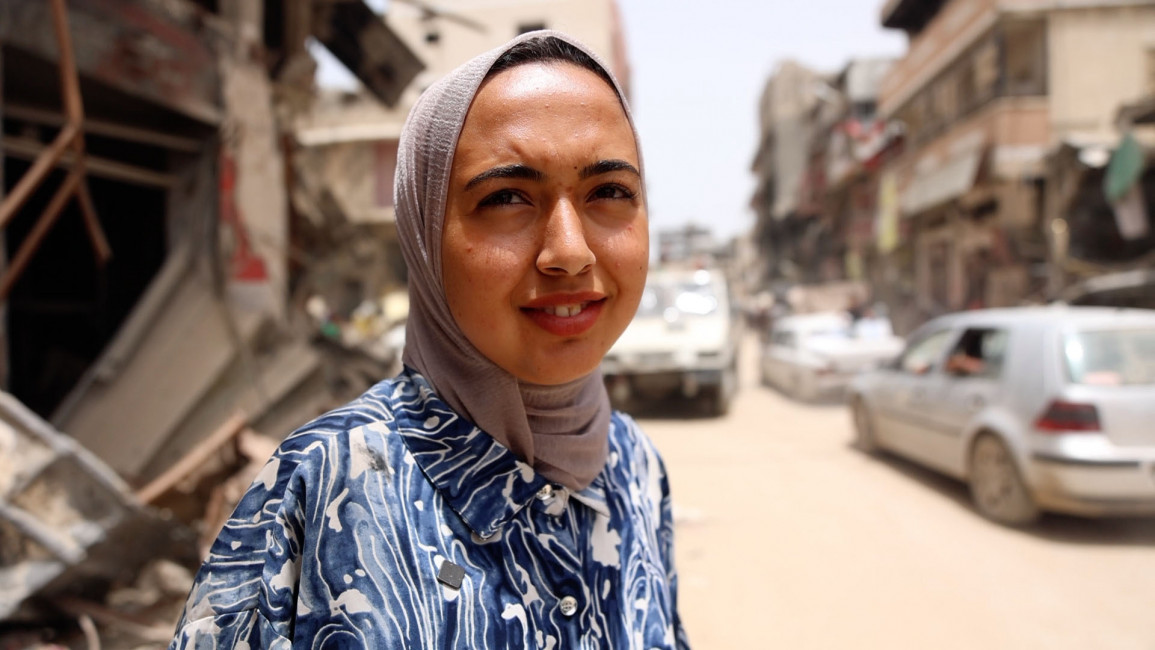
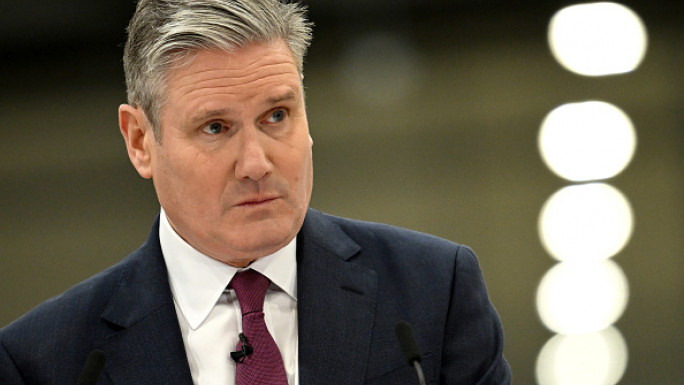
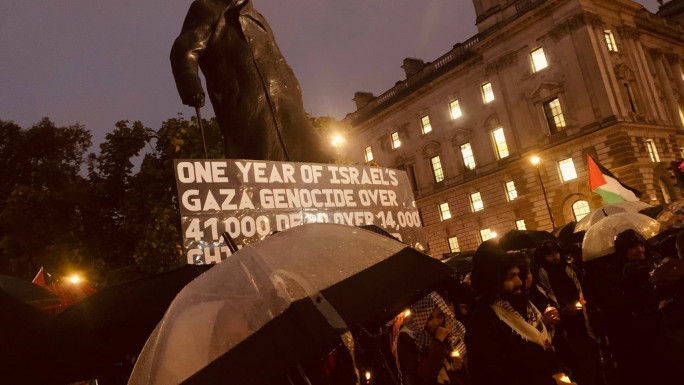
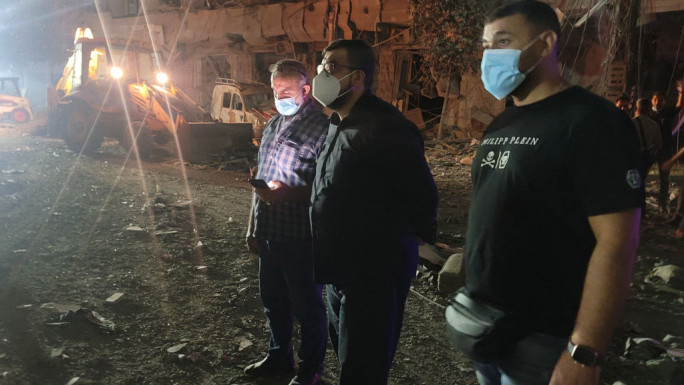
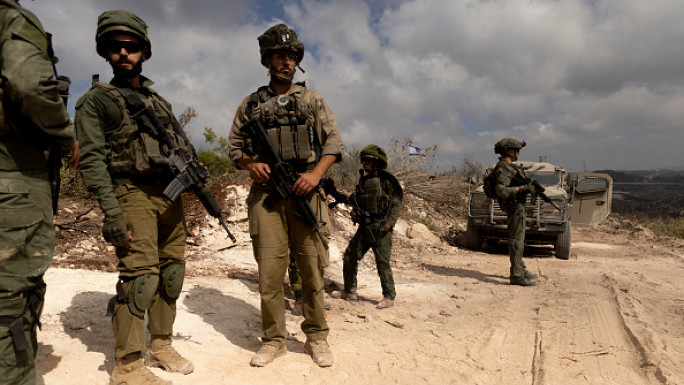
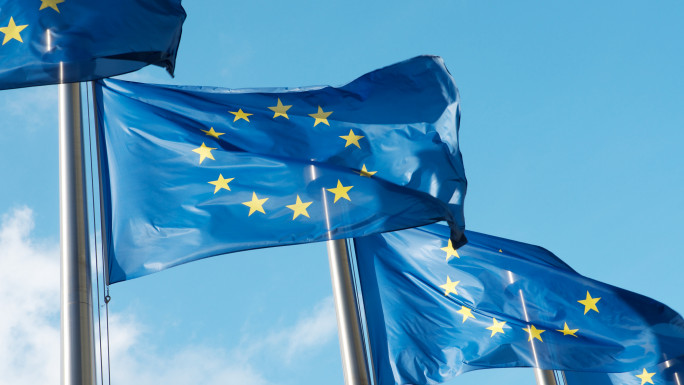
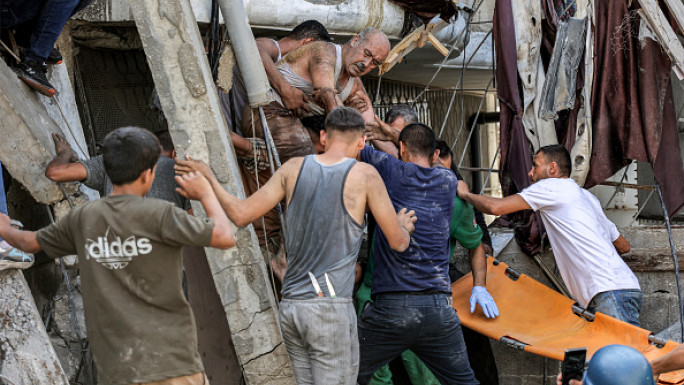

![US court [Getty] US court [Getty]](/sites/default/files/styles/image_330x185/public/media/images/5C0E9BFB-1BA9-4A6E-B726-01BF3263C57A.jpg?h=d1cb525d&itok=57HT0fJX)
